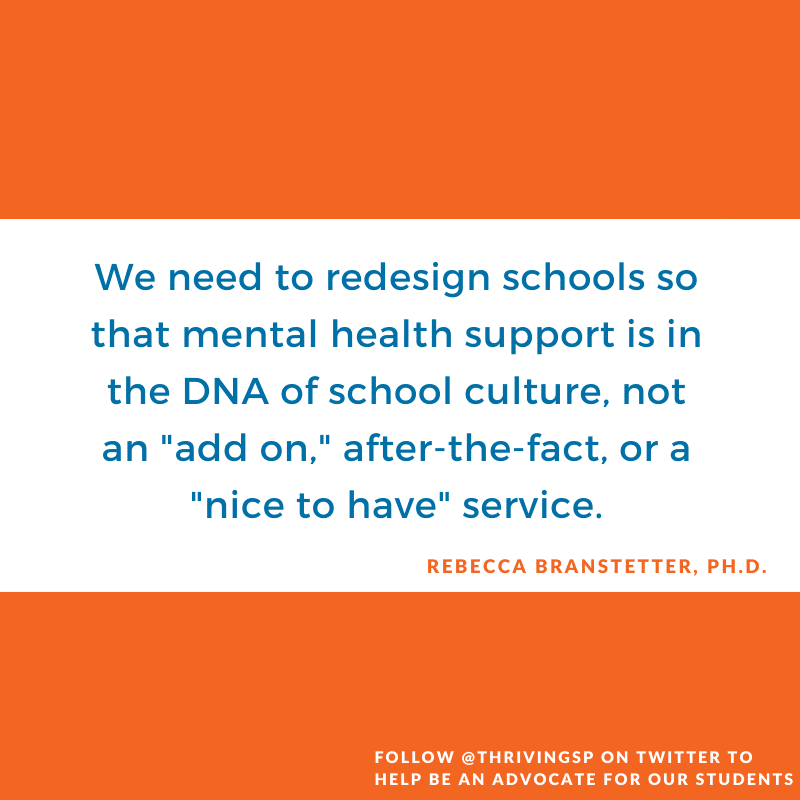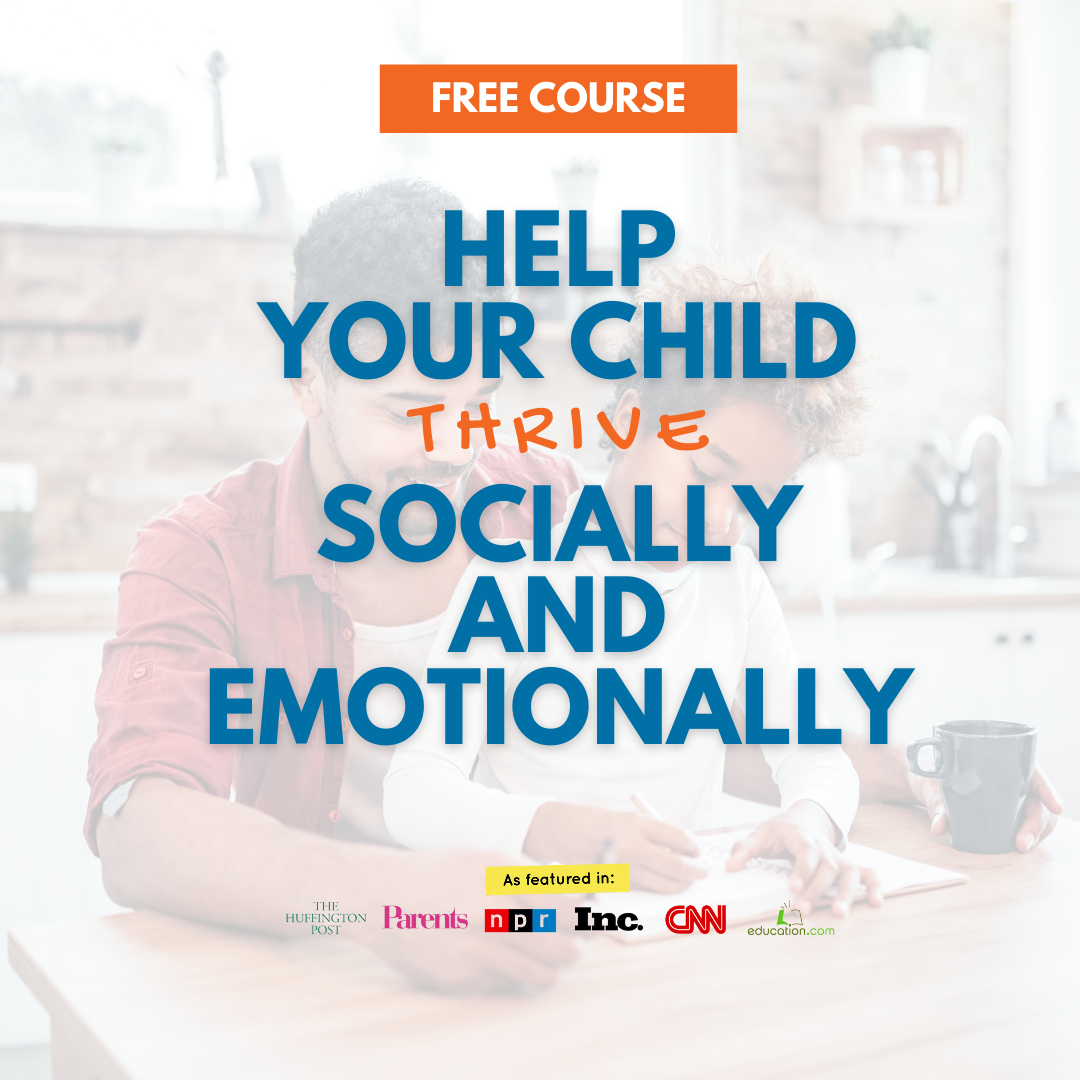Distance Learning and Mental Health
For more than a year, our students have attended some version of at-home distance learning, which has taken a toll on everyone’s mental health—the kids, teachers, and parents alike.
While hope for returning to some sense of “normalcy” is on the horizon with vaccines, the truth is, we are still in a time of transition, change, and stress. The stress comes from multiple sources—a year of social isolation, Zoom and screen fatigue, and disrupted lives—and now, big changes in routine and anxiety of returning to school buildings.
There’s added stress on families with kids with special needs, like those with Autism and other neurodiverse conditions, who may struggle with transitions and change.
So what can be done?
How to Help Students with Special Needs at Home
I joined KTVU in San Francisco to talk about this very issue. Check out this 4-minute segment below on how to support children with special needs at home. And (as I do…), I also made sure to share the critical role of the school psychologist in providing much needed social-emotional and learning support to students and their families at home.
Returning to School Buildings is Only the First Step
As the segment showed, it’s easy to get bogged down in the problem, and it’s a big one:
Before the pandemic, one in five kids had a mental health issue or trouble learning.
Now that number is much higher, though data is still being compiled.
Even before the pandemic, school psychologists were strapped. Current ratios are about one school psychologist for 1,500 students, and the recommended ratio is about one to 500 students. With current ratios, school psychologists are often working only at the crisis level, when we are trained to work at the prevention and early intervention levels as well.
As we ease into in-person school again, it’s tempting to think that all will return to “normal” with our kids’ mental health and learning.
The reality is, we need more school psychologists and other mental health professionals on staff to help support the social and emotional needs of our students when they return, especially those with special needs.
We must focus on holding space for processing the stress of the pandemic.
We can’t jump back into academics like nothing happened and expect kids to be able to focus and learn when they carry with them a years worth of stress.
Research showed that in the wake of Katrina, a recent example of displacement and school disruption, students struggled when schools focused too quickly on academic remediation rather than social-emotional needs.
This is why we have to work at the prevention level and provide social-emotional supports for all our students when they return to school buildings.

Stressed out kids can’t learn, and many of our students will be carrying the stress of the pandemic with them when they walk back in the buildings. Schools were strapped for mental health support before the pandemic, and we are now facing a “pandemic” of social-emotional needs that makes the shortage even more troubling.
Shortages of school psychologists shouldn’t shortchange our kids.*
We need both short term and long term solutions to adequately support students now and in the future.
In the long term, we need to redesign schools so that mental health support is in the DNA of school culture, not an “add on,” after-the-fact, or a “nice to have” service. (See my manifesto upon a soapbox HERE.)

In the shorter term, we can continue to give immediate support to our families who are struggling with distance learning and transitioning their students back to buildings.
That’s why I’ve collaborated with Generation Mindful to offer a free 25-minute training for parents, particularly those who have neurodiverse children, such as children with Autism, ADHD, or social-emotional challenges.
This training helps parents boost social and emotional learning at home and how to move from “what’s wrong to what’s strong” (to borrow an amazing phrase from school psychologist and SEL champion, Dr. Bryon McClure). We provide free printables for parents to use to focus on their child’s strengths in order to overcome their challenges.
Check it out here and feel free to share.
A Parting Gratitude….
It’s been a heck of a year. We’re not out of the woods yet. I want to applaud all the teachers, school psychologists, school staff, and parents who have had to turn on a dime to help our children at home through this difficult time.
It’s been far from ideal. It’s been messy and hard. It’s been a LOT of trial and error. None of us have done this before.
But I remain optimistic that there are lessons learned that will help us redesign how we think about our educational system.
As we move back to “normal,” I hope that we can start healing together…
Let’s give each other grace for the struggles we’ve collectively gone through, and move forward with a clear vision for our students.
We can heal our educational and mental health system.
It starts with a shared mission of fighting for adequate funding for the mental health and learning supports our kids deserve.
***
Rebecca Branstetter, Ph.D., is a school psychologist, speaker, and author on a mission to help children thrive by supporting school psychologists, educators, and families. She is the founder of The Thriving School Psychologist Collective, an online community dedicated to improving mental health and learning supports in public schools, as well as the co-creator of the “Make It Stick Parenting” course, which provides parents tools to build their child’s social-emotional learning, and the “Peace of Mind Parenting” course to support families during distance learning.
*Credit for this fabulous phrase goes to @SecondaryPsyche on Twitter. 🙂

